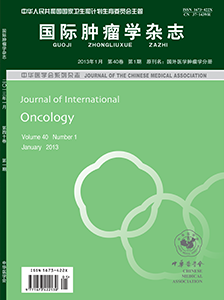Effect of perception control and self-management on cancer-related fatigue in breast cancer patients with chemotherapy
引用次数: 0
Abstract
Objective To understand the status quo of perception control, self-management and cancer-related fatigue (CRF) in breast cancer patients receiving chemotherapy, and to investigate the impacts of perception control and self-management on CRF. Methods In this study, 246 breast cancer patients undergoing chemotherapy from Shandong Cancer Hospital and Institute were investigated by means of cross-sectional survey. Cancer experience and efficiency scale was used to evaluate the patients′ perception control; cancer patients′ self-management scale was used to assess their self-management; and Piper Fatigue Scale was used to evaluate their CRF. Finally, the scores of CRF among the patients with different demographic data were compared, and the effects of perception control and self-management behavior on CRF were analyzed. Results In univariate analysis, there were statistically significant differences of CRF scores resulting from different educational backgrounds (F=3.392, P=0.019), sources of medical cost (F=4.368, P=0.005), disease stages (F=4.376, P=0.005), chemotherapy periods (F=3.865, P=0.010) and courses of disease (F=3.094, P=0.028). The differences in each dimension of perceived control cancer experience (F=7.248, P=0.001), control efficacy (F=96.595, P<0.001), self-management level of cancer patients (F=65.009, P<0.001) and CRF (F=130.973, P<0.001) were statistically significant. Cancer experience in perception control was positively correlated with CRF (r=0.467, P<0.001); control effectiveness and self-management of cancer patients were negatively correlated with CRF (r=-0.505, P<0.001; r=-0.564, P<0.001). Multiple linear regression showed that source of medical expenses (setting commercial insurance as the reference group), chemotherapy cycle (setting chemotherapy cycle ≥ 6 cycles as the reference group), cancer experience, control effectiveness, and self-management were entered in regression models, which could explain 55.5% of the total variation in CRF scores, and there was a significant linear relationship (F=17.100, P<0.001). Conclusion Medical staff should focus on CRF in patients at their own expense and in the 2-5 chemotherapy cycles. Cancer experience is positively correlated with CRF. Control effectiveness and self-management behavior are negatively correlated with CRF. Key words: Breast neoplasms; Fatigue; Analysis of influence factor; Perception control感知控制和自我管理对乳腺癌化疗患者癌症相关疲劳的影响
目的了解乳腺癌化疗患者感知控制、自我管理和癌症相关疲劳(CRF)的现状,探讨感知控制和自我管理对CRF的影响。方法采用横断面调查的方法,对山东省肿瘤医院及肿瘤研究所246例接受化疗的乳腺癌患者进行调查。采用癌症体验与效能量表评价患者的感知控制能力;采用癌症患者自我管理量表对患者的自我管理进行评估;采用Piper疲劳量表评价其CRF。最后比较不同人口统计数据患者的CRF得分,并分析感知控制和自我管理行为对CRF的影响。结果在单因素分析中,不同教育背景(F=3.392, P=0.019)、医疗费用来源(F=4.368, P=0.005)、疾病分期(F=4.376, P=0.005)、化疗时间(F=3.865, P=0.010)、病程(F=3.094, P=0.028)对CRF评分的影响均有统计学意义。在感知控制癌体验(F=7.248, P=0.001)、控制疗效(F=96.595, P<0.001)、癌症患者自我管理水平(F=65.009, P<0.001)和CRF (F=130.973, P<0.001)各维度上的差异均有统计学意义。感知控制的癌症经历与CRF呈正相关(r=0.467, P<0.001);癌症患者的控制效果和自我管理与CRF呈负相关(r=-0.505, P<0.001);r = -0.564, P < 0.001)。多元线性回归显示,回归模型中引入医疗费用来源(以商业保险为参照组)、化疗周期(以化疗周期≥6个周期为参照组)、癌症经历、控制效果、自我管理等因素,可解释CRF评分总变异的55.5%,且存在显著的线性关系(F=17.100, P<0.001)。结论在2-5个化疗周期内,医务人员应自费关注患者的CRF。癌症经历与CRF呈正相关。控制效果和自我管理行为与CRF呈负相关。关键词:乳腺肿瘤;疲劳;影响因素分析;感知控制
本文章由计算机程序翻译,如有差异,请以英文原文为准。
求助全文
约1分钟内获得全文
求助全文

 求助内容:
求助内容: 应助结果提醒方式:
应助结果提醒方式:


